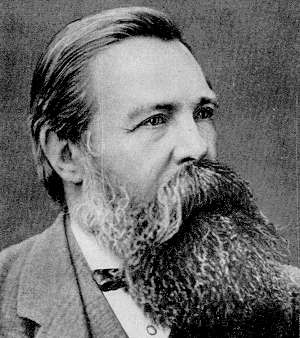
In his book,"The Tipping Point: How Little Things Can Make a Big Difference," Malcolm Gladwell discusses what he calls, "tipping points" which are "the levels at which the momentum for change becomes unstoppable." Gladwell defines a tipping point as a sociological term, "the moment of critical mass, the threshold, the boiling point." The book seeks to explain and describe enormous and "mysterious" sociological changes that mark everyday life. As Gladwell states, "Ideas and products and messages and behaviors spread like viruses do."
Sound familiar? Try this on for size:

...at certain nodal points, the purely quantitative increase or decrease gives rise to a qualitative leap; for example, the case of water which is heated or cooled, where boiling point and freezing point are the nodes at which -- under normal pressure -- the leap to a new aggregate state takes place, and where consequently quantity is transformed into quality.
Recognize it? It's from everybody favorite book by Frederick Engels, the "Anti-Dühring." (Or did you like "The Condition of the Working Class in England in 1844" better? No matter ...) Yes, the idea that change is dialectical, not gradual, is a communist idea, in fact, Marx called his system of philosophy Dialectical Materialism. Sociology is now obsessed with "tipping points," just as in biology the dialectical theory of Punctuated Equilibrium (which comes from Hegel, through the C.P.U.S.A., by way of Stephen Jay Gould) is replacing that of Phyletic Gradualism (which is irretrievably bourgeois, as it traces back to the anti-working class polemics of Parson Malthus). Yes, this is one more example, of which there are many, of why this capitalist system has got to go! Okay, we'd better wrap this up with a quote from Spengler:
“The money-census and the general franchise are alike bourgeois weapons — whereas an aristocracy does not count, but values, and votes not by heads, but by classes ...
... The task is set: it is imperative to free German Socialism from Marx.”



